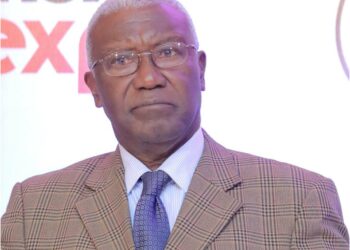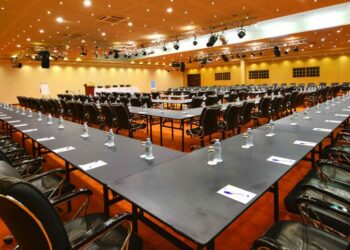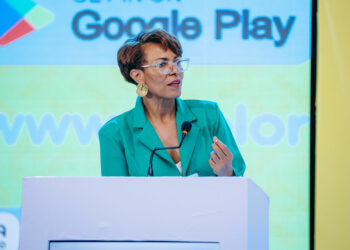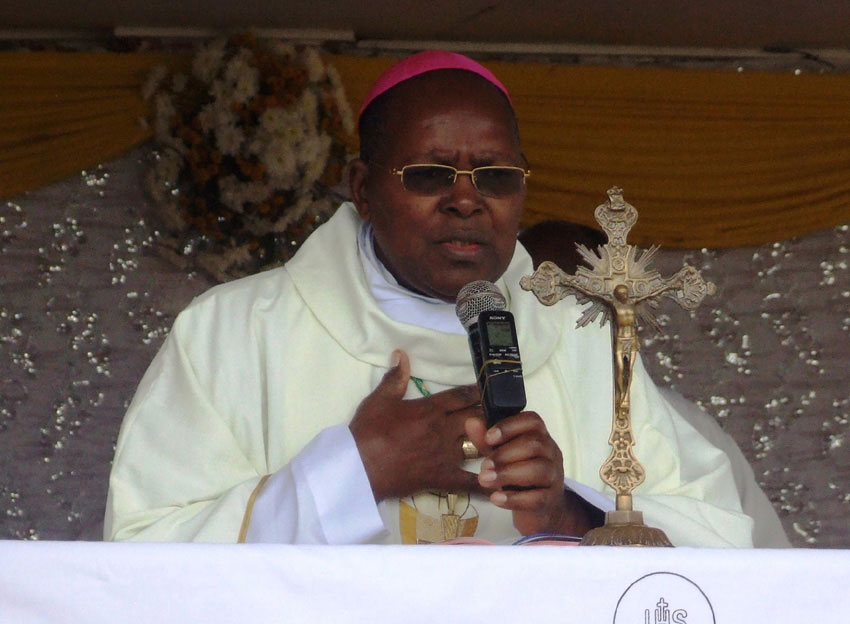By Henry Mutebe
The last couple of days have been bursting with dramatic events that have sent Ugandans talking about the strategies being used by the government to promote Tourism. In dire need of the tourism dollar, authorities are scratching their heads over which card to play in a game where the numbers are the Ace. The question on how to balloon the number of tourists coming to Uganda still hangs over their heads.
One particular event that has swollen above the rest has been the appointment (should I say selection?) of socialite Zari as a tourism ambassador. The logic, going by what the authorities say, is to ‘use’ or ride on Zari’s popularity, undoubtedly evidenced by her enormous social media following, to reach out to potential tourists. If her followers see the places Zari has been to, and what she says about them, the authorities believe, they will learn more about Uganda and its exciting tourist sites and possibly make a decision to visit Uganda.
In scenes akin to a Hollywood movie, the authorities arranged state of the art chauffeured cars and started moving around with Zari, sandwiched by mean looking security men, cruising at breakneck speed, sirens blazing, attracting the attention of wanainchi who see the efforts as ‘wastage of money.’ To be fair to Zari, she has done nothing wrong and deserves to mint every possible coin they can give her for that gig. It is not with Zari that I find a fault with this whole campaign; it is the strategy used that I believe needs recalibrating. Here is why
To understand the mind of a tourist, you have to literally try to enter their mind, understand their thought process or how they prepare to make a decision to visit a country. What do they consider? What influences their decision? What gives someone the confidence to save, prepare and leave their country headed for a foreign, distant land just to tour? I will share with you my little experience living in a white man’s country and what I saw and or learnt about them ( ‘some of them’, is probably more accurate).
In the summer of 2015, I went to Norway for my posts graduate studies. I had been to Europe before but this was going to be my first time staying for a very long period, immersed in society (to some extent). Whilst there, I made it a point, like the first white explorers to Africa, to observe, study and document how the ‘white man’ (sorry for using these labels) thinks, how they process their thoughts, what they value, how they value it, how they arrive at decisions especially on travelling abroad.
Since I love my country so much, I tried my best to use every platform I had to share about Uganda and its exciting tourist sites. Luckily I managed to woo some of them to come and visit Uganda. However, before they would visit, this is what would happen (what I observed).
First of all, Mzungus (I know am generalizing here…let’s say many of them), don’t make impulsive decisions. They think through things, search and re-search before they make a decision on visiting a country. If they were to visit a place next year in December, they start thinking about it today and start saving for that journey. They rarely make snap decisions that involve such large costs.
Throughout the year, they keep their tabs on that place. They research about that country, its security situation, values, people, culture, music, foods, etc. They visit their embassy page in that country to get updates on security situation…advisories et cetera. They ask their friends or trusted sources who have visited that country about both the good and bad about it…and you can be sure, their friends will tell them what exactly they saw or how they felt…detailing everything as it is.
Their friends or colleagues will give them honest feedback and either recommend the visit or not. The person intending to visit will take keen interest in finding anyone who is in or has been to that country before. They will also try to look for any Ugandans or people who have just arrived from that country for some sort of orientation or ‘preparation.’ They will learn about the potential diseases, immunize themselves against those diseases or buy a pack of drugs (some of which are even here, but not known to be here).
They will always think about that journey, share with family, try to look for any friends who live here or have been here, find out what contacts their friends have here and map out their visit with such detail and precision. So… for a whole year, the Mzungu is reading about Uganda and what is happening here.
Here is the bad news. Whenever something bad happens…let’s say the government badly arrests or roughs up or arrests a human rights defender like Stella Nyanzi or opposition people, these Mzungu get to know about Uganda, in that light. And you can’t believe these Mzungus (many of them) value tolerance that such sights of brutal arrests and violence may make them cancel their journey.
The bad news travels very fast and whoever is planning to come to Uganda will most likely learn about it. If they don’t get it by themselves, one of their friends who knows they are coming to Uganda will share with them or forward them the clips or links to news (as a way of warning them to care and be careful where they go).
For many of these Mzungus, the only pictures or images they get is what they see in the media and we know that media likes stories or events that will attract view ship. So the Ugandan authorities should as a fast step, desists from the political violence because it the first news the intending tourist gets.
If you lived in Norway for example, you can spend a whole year without ever seeing a gun or armed security personnel. So the mere sight of a gun is such a turn off for them. Guns and violence are things they don’t like or wish to see. This is the same with many Mzungus in these other countries. So every time Zari is being flashed with guns by her side, the more you turn away Mzungus who start to think it’s not a safe a place to go and there is perhaps fear of attacks or violence. The sight of gun wielding men always gives the impression that we are still a fighting, beastly, violent society.
To do proper tourism programming, you need to engage people who have an understanding of how Mzungu is thinking or their values, fears and or what motivates them. Tourists prefer to visit a place that is free, and where they can visit and get lost in the crowd without fear. When tourism ambassadors are flashed in the media with such security detail, it creates a very disturbing impression about security and our values as a society.
While we are used to seeing guns here, some people spend 2 years without seeing a gun in some of these countries. So those doing the programming and strategizing for Uganda Tourism Board should wake up to this reality. Everything is interpreted to mean something. The world is so connected that whatever is happening is being viewed or seen in real time.
If Uganda receives 300,000 European every year (as an example), this means that right now, there are 300,000 Europeans watching Uganda and what’s happening here and they will keep their eyes on Uganda for the next one year. Everything we do can make or break their decision to come here.
Sometime back around 2014 or 2015, there was an attempt to pass the ant-homosexuality law for example. It received a lot of attention from all these western capitals. Now here is what few Ugandans understand about Mzungus. Whether they like gays or lesbians or not, they do not support their mistreatment or killing. To them, no matter whether you agree with a person or not or their life style, killing is completely out of the question. To kill is be a monster…no matter whether you kill a dog or a person. In fact you can be imprisoned for years…for being cruel or mistreating an animal. That is how serious they detest cruelty and violence.
So when they heard that in Uganda, there was an attempt to pass a law that would lead to killing of gays, they viewed Uganda as a place of murderers. To illustrate this point, I will give you an example of what happened when I went for some conference. During an event, someone was illustrating a point and he gave Uganda as an example of country where they ‘kill or murder’ gays. He spent some time on it, illustrating how violent, vicious, beastly some places of the earth still are. He wondered how a human being, in this day and age, can still feel human while entertaining the thought of killing another. To them killing, no matter what it is you are killing, is simply something that should not be even thought of. In fact this is the reason some of them dont even eat beef or animal meat…because they believe its cruel to kill animals because they also feel pain.
Anyway…In that room, at the conference, I was the only Ugandan and everyone moved out with the impression that Ugandans are murderers. When it was time for dinner, and we were introducing each other, I almost feared to introduce myself as a Ugandan because I seemed to be ‘murderer’ in the room. For the first time, I felt the weight of the happenings in my country weigh on my shoulders. This event illustrated to me first hand, what the impact of what happens here can impact how people make decisions about Ugandans.
So you can imagine what people in that room went away with. In later events, I tried to explain what had happened and to tell them that personally I have never even seen anyone killed in Uganda because of their sexula orientation. But here was the single story that was now painting all of us with the same brush. I did not blame this man though, that is what he had heard in the news or read about Uganda…just like we read about bombs in somalia or Iraq and completely never imagine there are ordinary people in those countries going on about their lives who neither hate or throw bombs.
Make no mistake, not all Mzungus are gay or even agree with LBGTs, but they would completely detest anyone who abhors the thought that someone should be killed or be discriminated on grounds of their sexual identity. They believe human beings can debate on issues but must not kill one another over their differences.
I had prepared to make a presentation about Uganda during that dinner but I knew they would be looking at me like the representative of all of Ugandans or murderers yet I cannot even kill an insect. For many people, that’s how they view Uganda and that’s how what we do impacts their decisions on whether they come or cancel their journeys.
On another occasion, there was a violent crackdown by Police on opposition leaders in Uganda. The day after, I had been invited to meet a group of international students who were exploring visiting Uganda (they were about 30 of them). They invited me to make a presentation and tell them why they should visit Uganda. I made my presentation and finished. I then told them to ask any questions in case they needed any clarification or further information.
One of them pulled out her phone and played a video of the violent crackdown and asked me how safe Uganda is yet there is always violence on the streets. They just could not understand why police beats up women. I tried to explain but frankly it was not nice and again, I felt how the actions of police and security frustrate many of us who wish to talk positive about our country. Those students went to South Africa. They were a group and had they come to Uganda, we would have 30 of them every year since it was a 7 year project. Such is the impact of what appears in the news. People are watching and making impressions and decisions.
To increase tourism or attract more people, we have to work on what is being relayed in the news. No matter whether it’s an isolated event or not, that is exactly what represents us as a society. The Police should stop beating up people and treating suspects with such brutality. It creates a very wrong image about our country. No tourist from the west planning coming here doesn’t have their ears on whats going on here. So you may want to work on what they are hearing or seeing about Uganda.
Secondly, we need more Mzungu ambassadors. We have to admit Mzungus trust Mzungus more than us. So you need many Mzungu friends, companies and or ambassadors who are professionally engaged, paid to share and market our country to their friends. Countries that have some white settlers like Kenya, Zimbabwe, Namibia, South Africa, Morocco, among others find it easy to attract tourists because there are already enough ambassadors to give others (living outside those countries) confidence that there is something worth seeing and that the place is safe to visit. So we may need to court more Mzungus who know Uganda and can effectively sell it. We can set a target for them and pay them for those deliverables.
When it comes to domestic tourism, we have to lower prices for locals. Many of these places are far and above what locals can comfortably afford. The government can give hotels and tourist sites some incentives or subsidies that would make it possible for them to offer friendly packages for local tourists.
The idea of Zari may be fine, only that moving with her in flashy cars at breakneck speed, surrounded by guns sends the wrong message to potential tourists. For some of these people, a gun represents violence, fear and uet in their countries, they take over a year without seeing it. Until you get this fact into the heads of some of these people doing programming of our tourism, we are still going to struggle with getting people here. Stop beating up people on the streets, stop torturing suspects and reduce on events that create negative publicity.
You have to understand what each country values and utilize people who tower in those values and make them ambassadors. For example, in Norway, the Nobel Prize is such a big thing and everyone is keeping an eye who is chosen. In 2015, Victor Ochen from Northern Uganda was nominated for the Nobel Peace Prize. This was very big news. At this point, this boy should have been given some facilitation and materials and events arranged for him to share about Uganda, what we offer and the like. I dont think any of that happened.
Whenever there are big international events where a Ugandan is the highlight of the event, the Uganda Tourism Board should always be on guard to engage them to profile Uganda. This is how some of these countries get the numbers. Amos Wekesa is doing a very big job. Ideally government should be paying him for this job. You have to understand how Mzungu thinks, what they value in order to get them to come. People visit a country because of its stories….what they have heard about it. Imagine Amin is dead but up to now, many Mzungu still think he is alive and will kill them. He, even in death, still represents us to outsiders. What stories are we creating to potential tourists? How do they view Uganda? What are they seeing? The tourist coming next year will base their decision on what we do or what they hear about Uganda between now and then. The police and army have a lot to do in promoting or destroying Uganda’s image
Do you have a story in your community or an opinion to share with us: Email us at editorial@watchdoguganda.com











